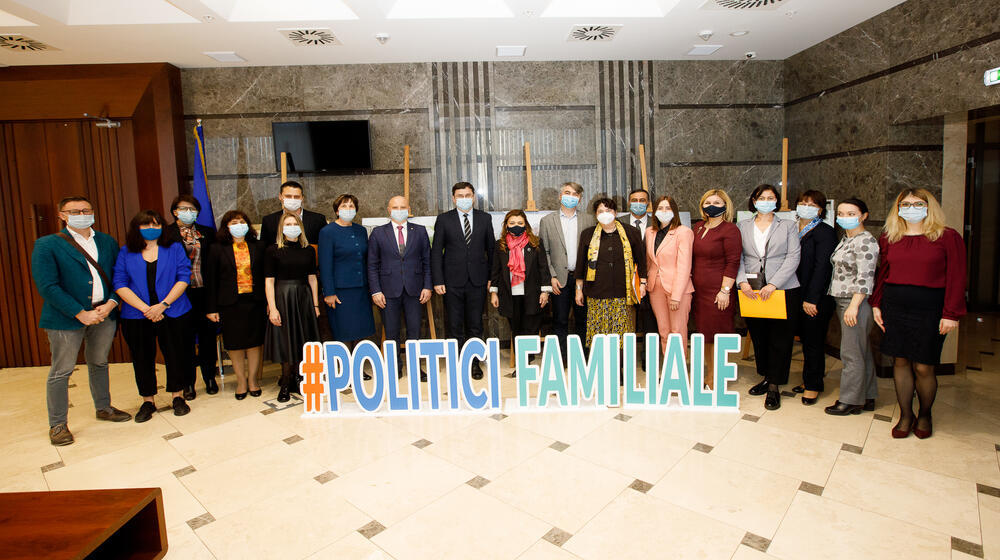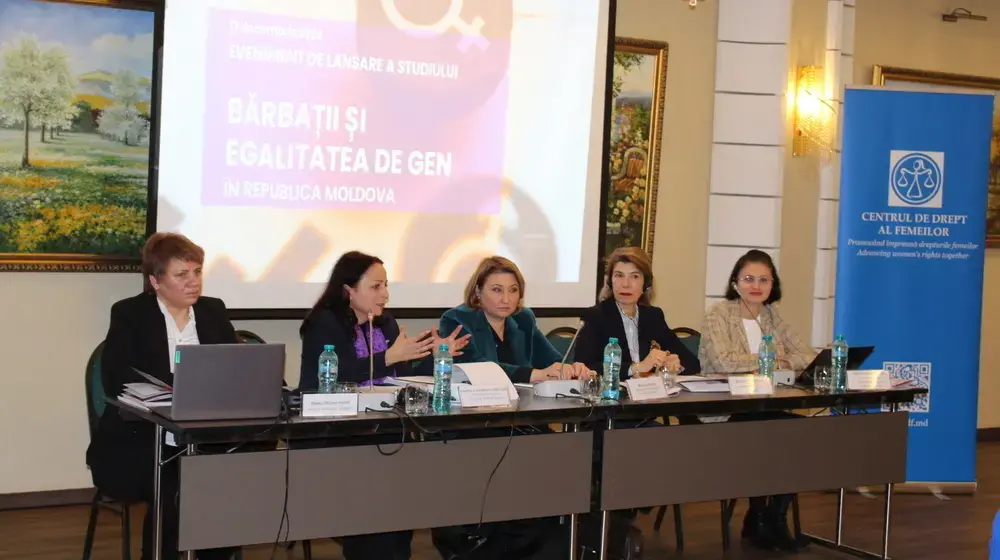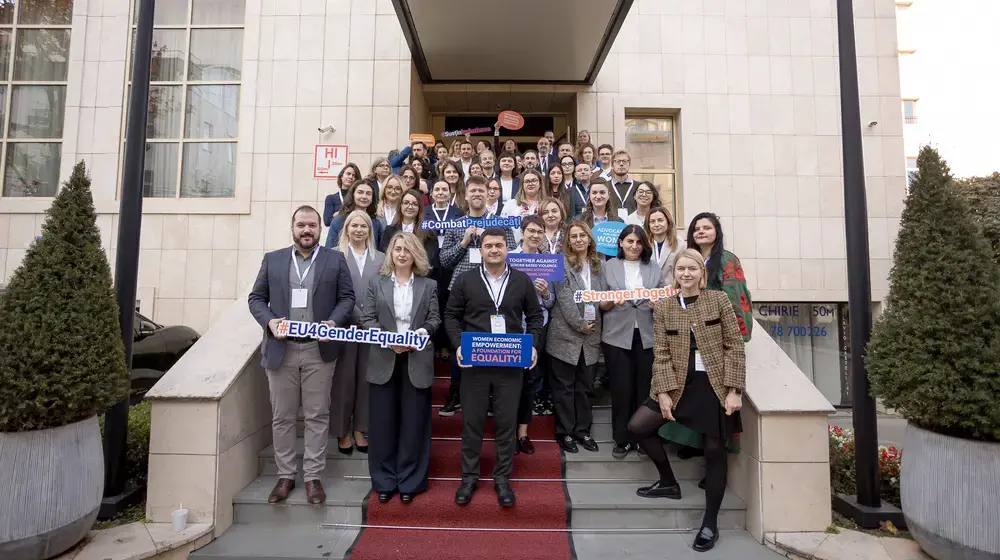In the Republic of Moldova, the maternal model of care for children and family members has perpetuated and men are being discriminated against when it comes to care of newborns. Thus, women are entitled to maternity leave regardless of how many years they have worked, while men can take paternity leave at childbirth (14 calendar days) only if they have been employed for at least three years.
This is one of the conclusions of the Analysis of national regulations in the light of the EU Directive on reconciling family and professional life, conducted by the UN Population Fund (UNFPA) and presented to the Parliament with the participation of private sector representatives, Government officials, development partners, EU officials and experts in the field.
According to the Analysis, labor legislation, as we all as social security and contraventional legislation need to be amended in accordance with the provisions of the EU Directive on work-life balance of parents and carers. Both parents and carers must have equal rights to allocate the necessary time to family members, especially to children or those with health problems.
"Our goal is to support women and men in the Republic of Moldova to achieve their fertility aspirations and to have as many children as they want. The data from the “Generations and Gender” study conducted by UNFPA show that on average Moldovans want to have two or three children, but in reality, they have fewer. Family-friendly policies will ensure a balance, will help eliminate gender stereotypes, involve women and men in the family and in the labor market equally, and, in the long run, help them to achieve the desired number of children and build demographic resilience of the country ", said Nigina Abaszada, UNFPA Moldova Resident Representative.
Among the recommendations formulated by experts is the establishment of the right of employed fathers to a paternal allowance regardless of the number of worked years. This regulation would help to remove discriminatory aspects in relation to men and their greater involvement in the care of children from the first days after birth. Another recommendation concerns flexible working arrangements for employees with children under the age of eight and careers. These arrangements offer the opportunity to balance family and professional life, reducing the pressure on the formal care system. In addition to paternity leave, flexible working arrangements aim to increase fathers' involvement in the care and education of their children, well as to balance the distribution and carrying out of other household tasks.
According to the data revealed by the most complex demographic study so far "Generations and Gender", conducted by UNFPA in 2020 on a sample of 10,000 people, household work continues to be distributed unfairly among partners. Over 82% of women say that they are always or usually responsible for preparing food. Men from childless households have a greater involvement in household tasks.
This meeting was organized on the platform of the Parliamentary Social Protection, Health and Family Standing Committee, with the support of the regional project "Expanding choices: gender responsive family policies for the private sector in western Balkans and Moldova", implemented by the UN Population Fund, with the financial support from the Austrian Development Agency, in partnership with the Ministry of Labor and Social Protection and the Chamber of Commerce and Industry of the Republic of Moldova.





